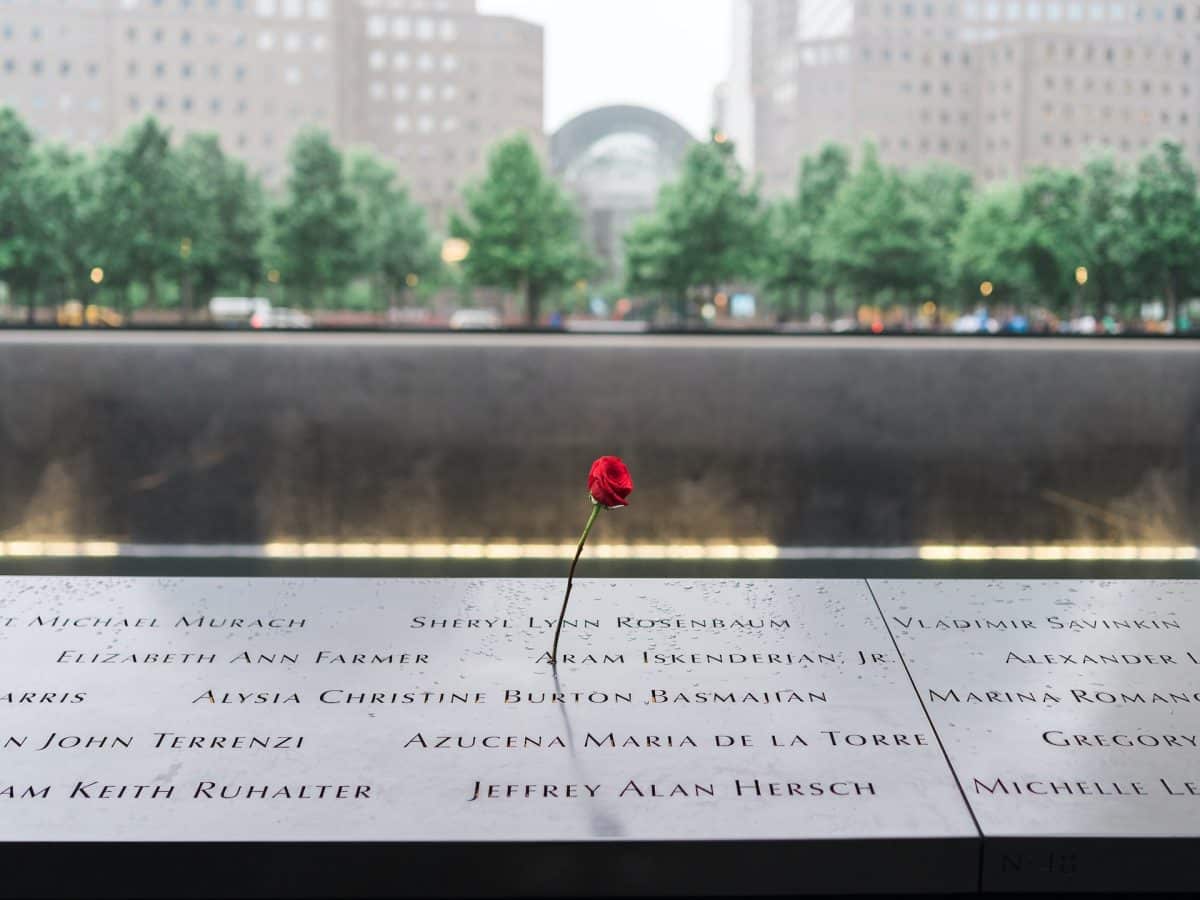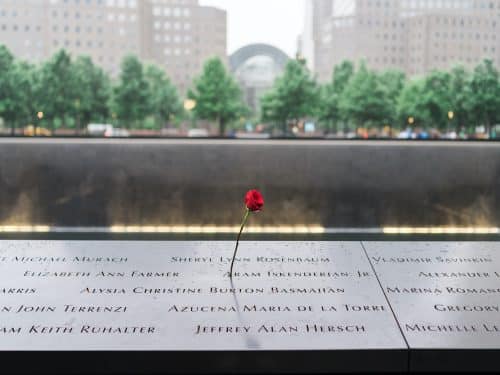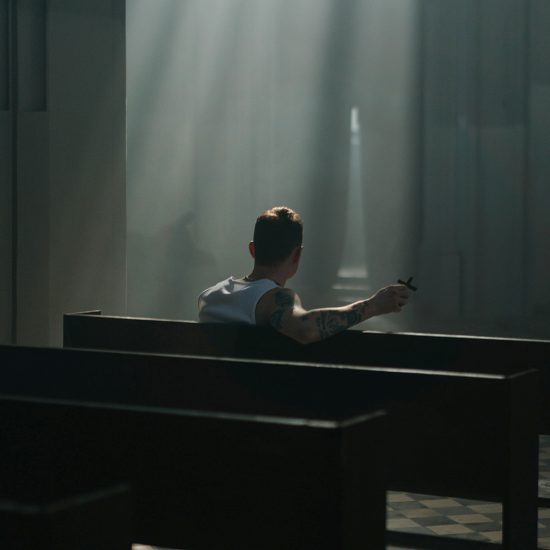
Most anniversaries are cause for celebration — like birthdays or a 50th wedding anniversary. Holidays celebrate the founding of a nation or the end of a war or the birthday of a hero.

Christina Ray Stanton
We celebrate our favorite moments in pop culture too, such as when the movie Titanic returned to theaters for its 20th anniversary, allowing us to again watch Rose standing at the bow of the ship just as we had seen her do two decades earlier.
But sometimes an anniversary is a reminder of something we would prefer to forget.
In March of 2020, I first heard rumors about a mysterious virus from the New York media. As a busy New York City tour guide with a calendar full of walking tours, I paid little attention. After all, New York and I had survived 9/11; it would take more than a virus to slow either one of us down.
But within days, I saw Manhattan become a ghost town as fear of the novel coronavirus swept the nation. Seeking safety, my husband and I left the city to stay with family in Florida. But instead of escaping the storm, we were headed straight into the eye of the hurricane.
Although we had no way of knowing it, we were already infected with COVID-19, and I would soon be fighting for my life from a hospital bed hundreds of miles from home. I became so ill that I was hospitalized twice. During my second hospital stay, a doctor told me I had a “50/50 chance of survival.” My husband and I discussed end-of-life issues and prepared for the worst while we prayed for the best.
Thanks to God’s great mercy, I lived. But for months I suffered “long-haul COVID” symptoms, losing much of my hair, suffering from strange aches and pains, battling insomnia, and waiting in vain for my sense of taste and smell to return.
One year after I tested positive for COVID, I had finally shaken off most of my aches and pains and regained my energy and sense of purpose. I began to take on new exciting new projects and rejoiced that my life was somewhat back to normal.
But as the anniversary of my illness approached, I felt surprisingly gloomy. Surprising until I realized I was suffering from an anniversary reaction.
I had become acquainted with anniversary reactions about a decade earlier when I became unexpectedly emotional around the anniversary of the 9/11 terrorist attacks. My therapist at the time had enlightened me about anniversary reactions and explained that they are common for anyone who has suffered through a traumatic experience. They can be a normal part of the grieving process and also a symptom of PTSD — post-traumatic stress disorder.
If you have ever dreaded the anniversary of a loved one’s death or a tragic incident in your past, you’re not alone. An approaching anniversary of a loss or a trauma can trigger depression, a change in sleep patterns, or irritability and lead to intense or extreme behaviors. Buried memories may come flooding back. Pain related to injuries suffered during the trauma can flare up, or unrelated aches and pains can begin.
“A trauma victim seems to anticipate the anniversary of the traumatic event by subconsciously reliving it. The victim’s body, mind, and soul have memorialized the physiological, psychological, and spiritual effects of the trauma, and such memories become realities as the commemoration of the dreaded event draws near,” states Steve Hoppe, a Christian counselor, pastor, and author of several books and articles on current therapy topics.
The last few years have been traumatic for most of us. The fallout from the COVID-19 pandemic is vast. It has shut down normal life and affected school and work and social gatherings. Over a million Americans have died as a result of the virus, and millions more have suffered from it. Many have lost jobs, at least temporarily, schools have been closed, offices have been closed, and social events and travel have been canceled or changed.
While dealing with the pandemic since the spring of 2020, Americans have also experienced mass shootings and endured natural disasters that shattered lives and cut wide paths of destruction. As we approach anniversaries of traumatic events or dates associated with loss, many people find themselves feeling vulnerable and out of sorts, although they may not know why.
Dr. Jeff White, an ordained pastor and marriage and family therapist in Connecticut and a master trainer for the Gottman Institute said, “While specific literature to the anniversary effect is limited, the literature around trauma and grief is extensive. I have provided therapy to many individuals and couples who experience greater sensitivity and vulnerability around the dates associated with trauma or loss.”

Aaron Lee / Unsplash
After learning about the anniversary effect, I began taking steps each year to minimize my negative emotional reactions as we approached 9/11, and I will probably take similar steps in early March, at least for a few years.
I don’t schedule work or casual meet-ups with friends for a week before or after the 9/11 anniversary, as I might become distracted, testy, and short-tempered. I give myself a green light to cry and sleep as much as I want. I put my therapist on alert in case I need her services. I avoid news accounts of the attacks and limit my media consumption, especially social media.
If you are experiencing an anniversary reaction, psychologists recommend that you practice patience with yourself and be especially selective in what you put in your body — especially alcohol, caffeine, and sugary products. Explore creative ways to channel strong emotions, such as creating art or cooking, or through sports such as running, biking, and hiking. And find a key flesh-and-blood loved one who will be fully supportive during a stress-filled period.
But the ultimate comfort through the valleys of life comes from knowing that the Great Healer, Jesus Christ, and understanding that “The Lord is close to the brokenhearted and saves those who are crushed in spirit,”(Ps. 34:18).
Turning to the Bible during an anniversary reaction or in any time of emotional upheaval is constructive because the Bible is full of such passages that speak to suffering, alienation, and deliverance. We are assured that our brokenness is where he meets us in his strength through chapters such as Psalm 116.
As Dr. Timothy Keller stated in his book The Reason for God, “Christianity does not provide the reason for each experience of pain, but it does provide deep resources for actually facing suffering with hope and courage rather than bitterness and despair.”
People who are experiencing the effects of trauma can also find comfort in activities that bring them into community with other Christians. Attending Bible studies, volunteering in outreach programs, and getting involved in different ministries can provide supporters who can actively speak into your life and lift you up when you need it. More importantly, these engagements can lead to a deeper relationship with Christ, the source that brings together a disparate group of individuals and turns them into a grafted forever family.
Through faith, Scripture, and the Christian community, God can heal sorrow and comfort Christians who are experiencing trauma for the first time — or on every anniversary of that trauma. Once we reach the other side of pain, we are reshaped more into his image, which allows us to give in increasing measure to others.
In the introduction of Walking with God through Pain and Suffering, Keller notes, “Suffering can refine us rather than destroy us because God himself walks with us in the fire.”
Many individuals suffer from acute trauma during their lives, and everyone faces challenging periods full of pain. Recognizing that both the trauma and any subsequent anniversary reactions are temporary can help you find healing and see the light at the end of the tunnel.
And for those who believe in Christ, there’s literally light at the end of the tunnel: “For our light and momentary troubles are achieving for us an eternal glory that far outweighs them all” (2 Cor. 4:17).
Christina Ray Stanton wrote an award-winning book about 9/11, “Out of the Shadow of 9/11”. She is a licensed NYC tour guide who specializes in the 9/11 memorial and 9/11 history.






